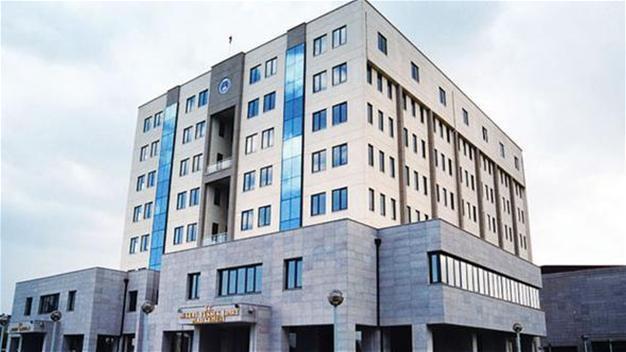Turkish state of emergency commission receives over 38,000 appeals
ANKARA

A commission formed to investigate controversial state of emergency measures in Turkey has received more than 38,000 applications in less than a month.
The commission - which will evaluate the appeals of those dismissed, as well as the foundations and associations closed with emergency decrees - started receiving complaints on July 17. The total number reached 38,500 as of Aug. 7, daily Habertürk reported on Aug. 8.
Turkey declared a state of emergency after the failed July 15, 2016 coup attempt, widely believed to have been masterminded by the followers of the U.S.-based Islamic preacher Fethullah Gülen. As part of emergency rule, the government has issued a raft of emergency decree laws that have led to the dismissal and suspension of thousands of people.
More than 105,000 public employees were dismissed and nearly 5,000 institutions were shut down over alleged links to the Fethullahist Terrorist Organization (FETÖ).
The legal path for those dismissed with decrees had been closed under the state of emergency, but a route to appeal was opened when the commission was formed on Jan. 23.
The seven-member commission chaired by Justice Ministry Deputy Secretary Selahaddin Menteş has been operating at the closed Military Court of Appeals building.
Habertürk reported that the panel will electronically track the stages of the applications starting from the minute they were filed until they are finalized.
The applications have been placed in nine different files with the logo of the Prime Ministry. The files also feature the name, ID number and institution of the complainant, as well as the number of the state of emergency decree law in which they were dismissed.
Each file has a different color depending on the applicant’s institution, in order to make it easier for the commission members to work. Files regarding the Education Ministry are red, files regarding the police are blue, files regarding the Interior Ministry are yellow, files regarding the Health Ministry are turquoise, files regarding the Prime Ministry are brown, files regarding the Justice Ministry are maroon, files regarding the Defense Ministry are green, files regarding the High Education Board (YÖK), the Supreme Council of Judges and Prosecutors (HSYK), the Court of Appeals, the Council of State and the Court of Accounts are gray, and applications categorized under “others” are put in dark blue files.
In addition, applications made to the European Court of Human Rights (ECHR) and administrative courts before the establishment of the emergency commission will be sent to the panel. Accordingly, the 24,000 applications rejected by the ECHR, which cited the existence of the emergency panel, will be sent to the commission.
The panel’s archive is kept in steel safes is being protected with a special security system, while members of the panel will only be able to access the files of the institution that they have the authority to view.
The decision process regarding applications will start in the coming days and the examinations will be carried out in line with the date in which the state of emergency in question was issued.
The commission will decide to accept or refuse the appeal after examining the files and the demands of giving verbal testimony or making the commission listen to witnesses will not be taken into account.
The assembly and quorum of the commission’s decision will be four, and members will not be able to abstain from voting.
If the commission accepts the appeals of those dismissed, it will notify the State Personnel Administration and the related institutions to allow the applicant in question to return to their duty.
Annulment suits will also be able to be filed to administrative courts against decisions made by the commission.
 A commission formed to investigate controversial state of emergency measures in Turkey has received more than 38,000 applications in less than a month.
A commission formed to investigate controversial state of emergency measures in Turkey has received more than 38,000 applications in less than a month.